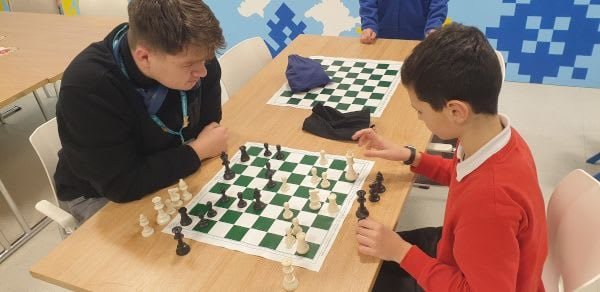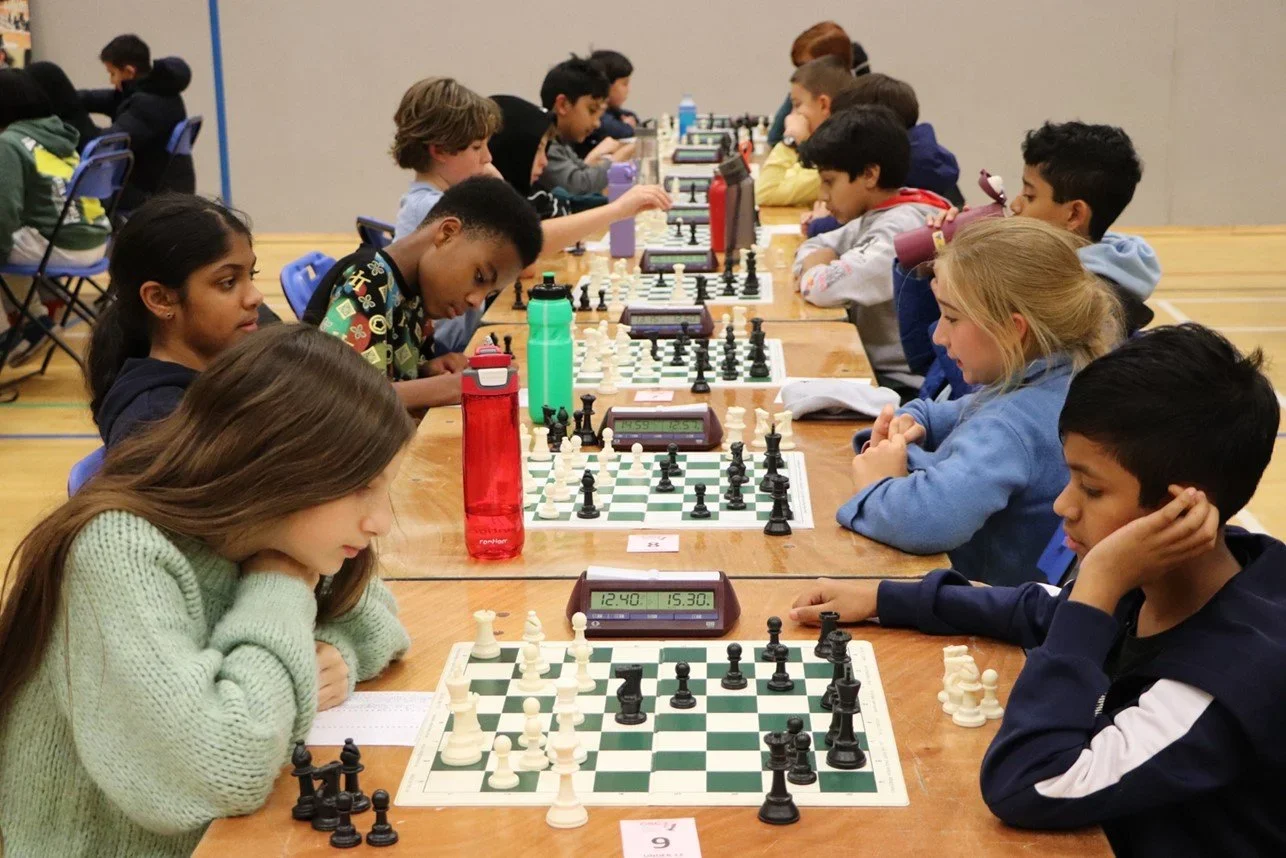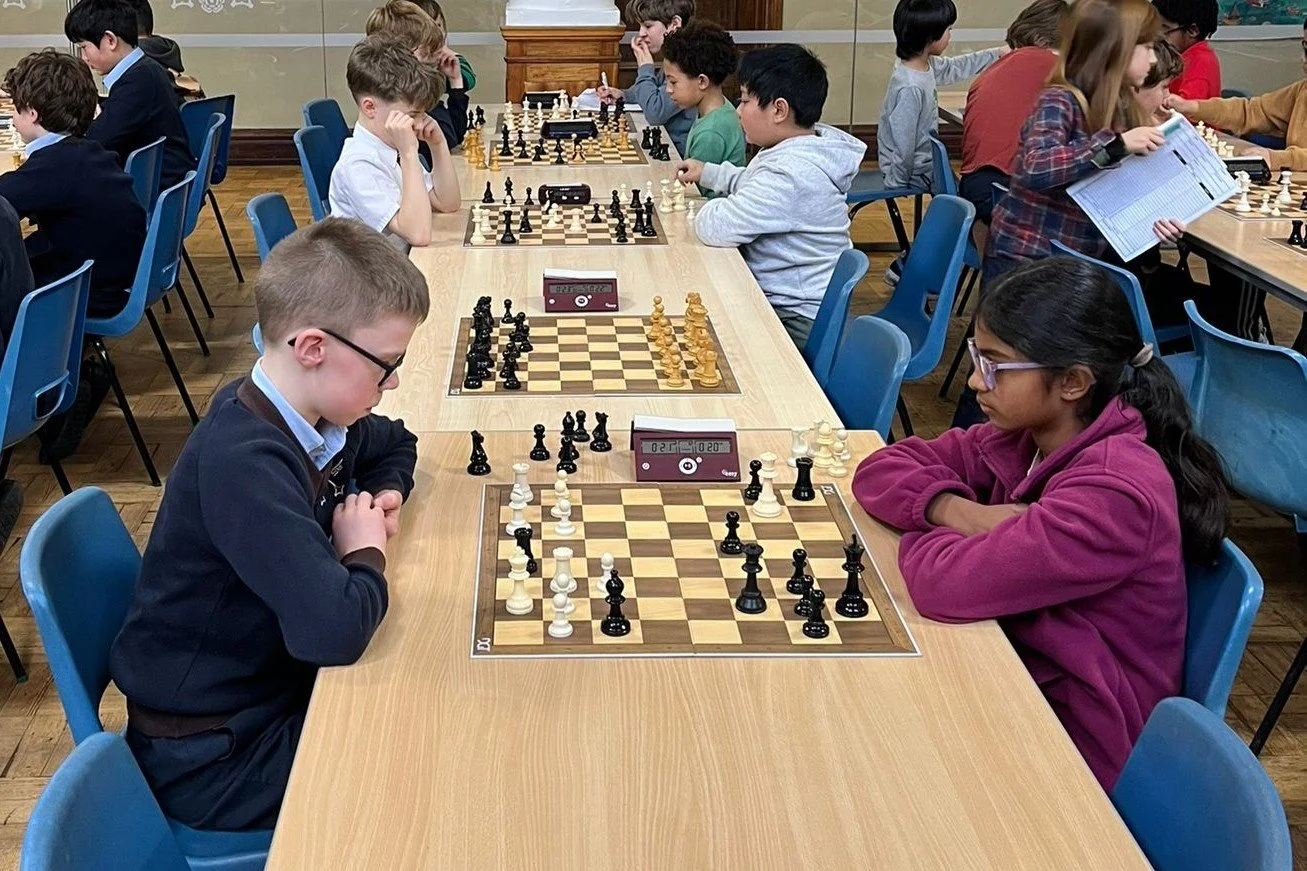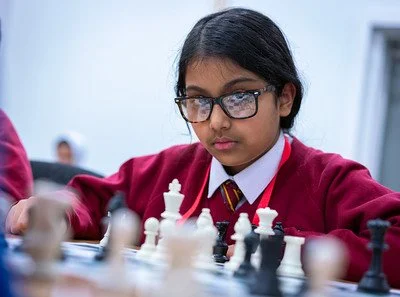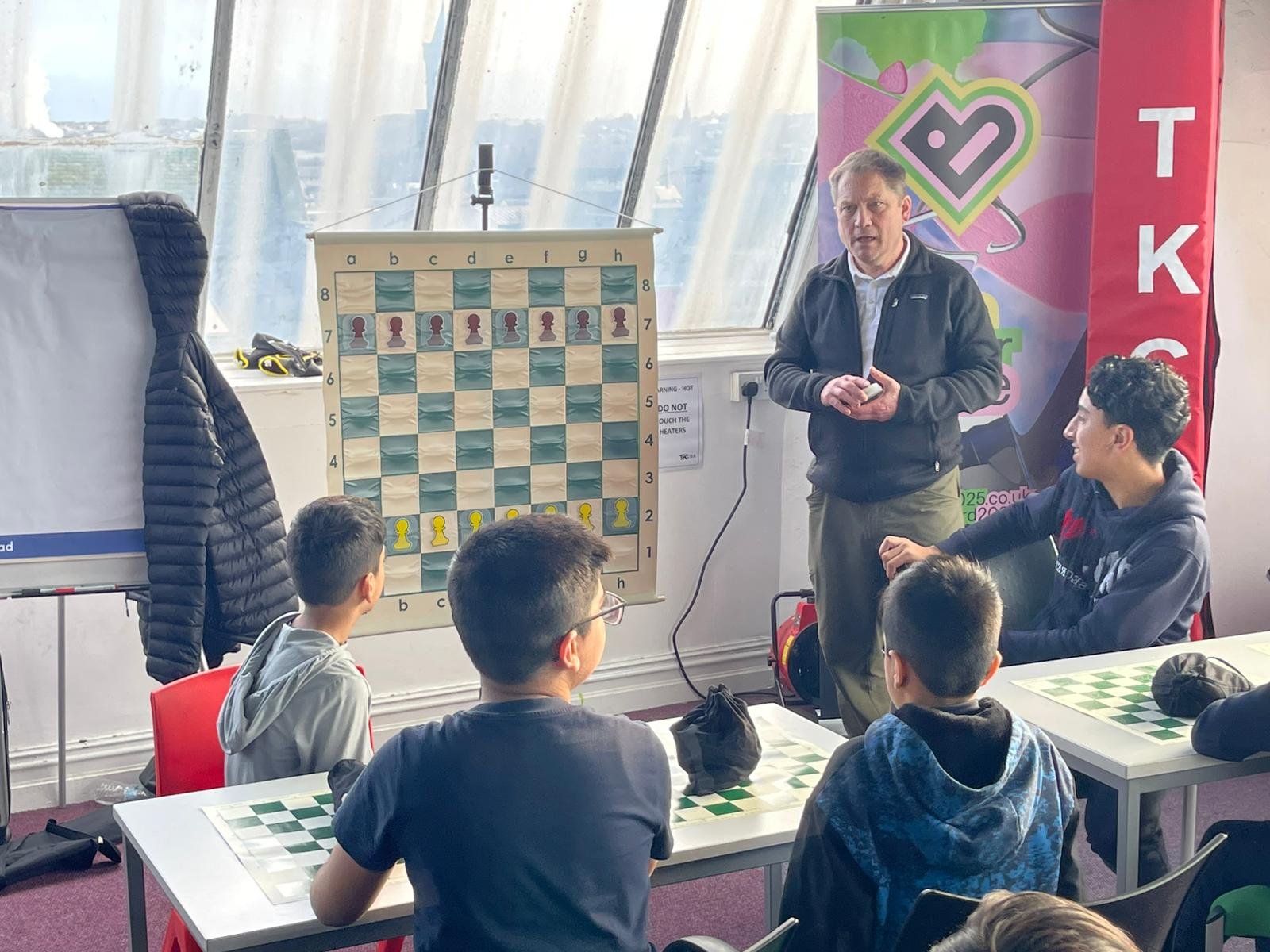
CSC’s work with refugees
Ukraine
Following a visit to Odessa by CSC CEO Malcolm Pein, CSC has recently helped establish chess lessons for groups of children in the cities of Kobeliaky and Derhachi in Ukraine, providing the chess equipment and funding the tutors.
The chess lessons take place in the Goncharenko centres and are delivered by local tutors, Rustam Bandaliiev and Mykola Mykolaienko. Up to 40 children take part in each lesson, and the early feedback is that they are really enjoying their learning and are making excellent progress. The children were kind enough to recently send us a lovely Merry Christmas message, recorded from their club.
Thanks to generous donations from many private individuals, CSC has been able to support several young Ukrainian chess players now resident in the UK. In Liverpool, CSC CEO Malcolm Pein has been supporting Ukrainian prodigy Svyatoslav Bazakutsa, who recently arrived in the city with his mother, fleeing fighting in Kharkiv. Elsewhere, coaching from Grandmaster Nick Pert helped Bodhan Terler achieve great success in the Major Open tournament at the British Championships.
In Bracknell, CSC has supported the Ukrainian Centre with chess equipment for children. Separately, two CSC tutors independently offered a programme of free chess lessons for refugees from Ukraine on their arrival in London.
In addition, CSC has provided free training and employment opportunities for Ukrainian chess coaches looking to work in schools in the UK.
Afghanistan
CSC ran chess activities for families from Afghanistan who were being temporarily housed in hotels in the City of London. The sessions were suitable for players of all ages and abilities and ran weekly across two hotels for 8 months in 2022. The sessions were always well-attended and gave the participants a much-needed leisure activity as well as the chance to develop their language skills. In total, CSC tutors delivered over 250 hours of tuition before the families moved to more permanent accommodation elsewhere. The programme was delivered in conjunction with the City of London Corporation.
Why Chess?
Chess lessons can develop English skills that are critical for integration into school environments and wider society.
Chess provides a leisure activity to improve mental wellbeing at a time of immense pressure and hardship.
Success at a sporting activity improves self-esteem and confidence.
Learning chess develops a life skill and a pass-time that can be shared with friends and families.
For more details about our work with refugees, please contact us here.




